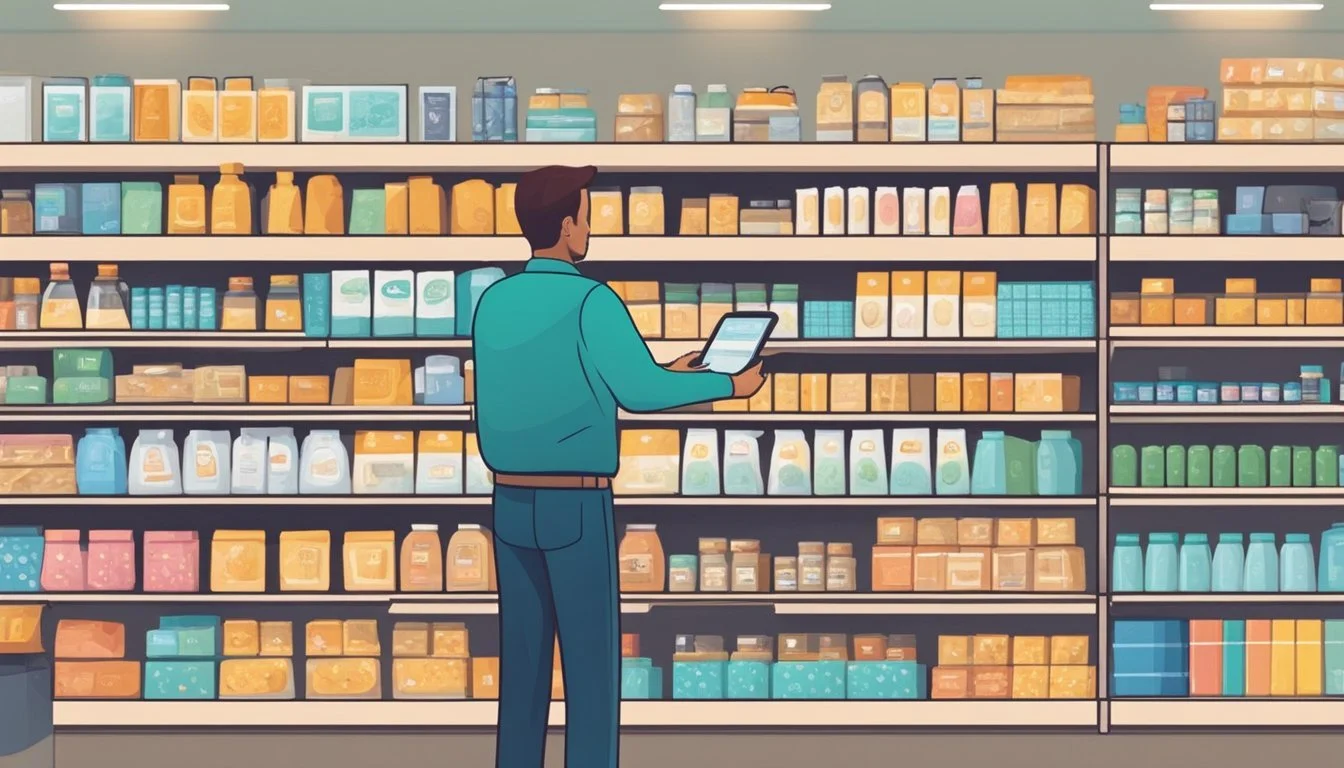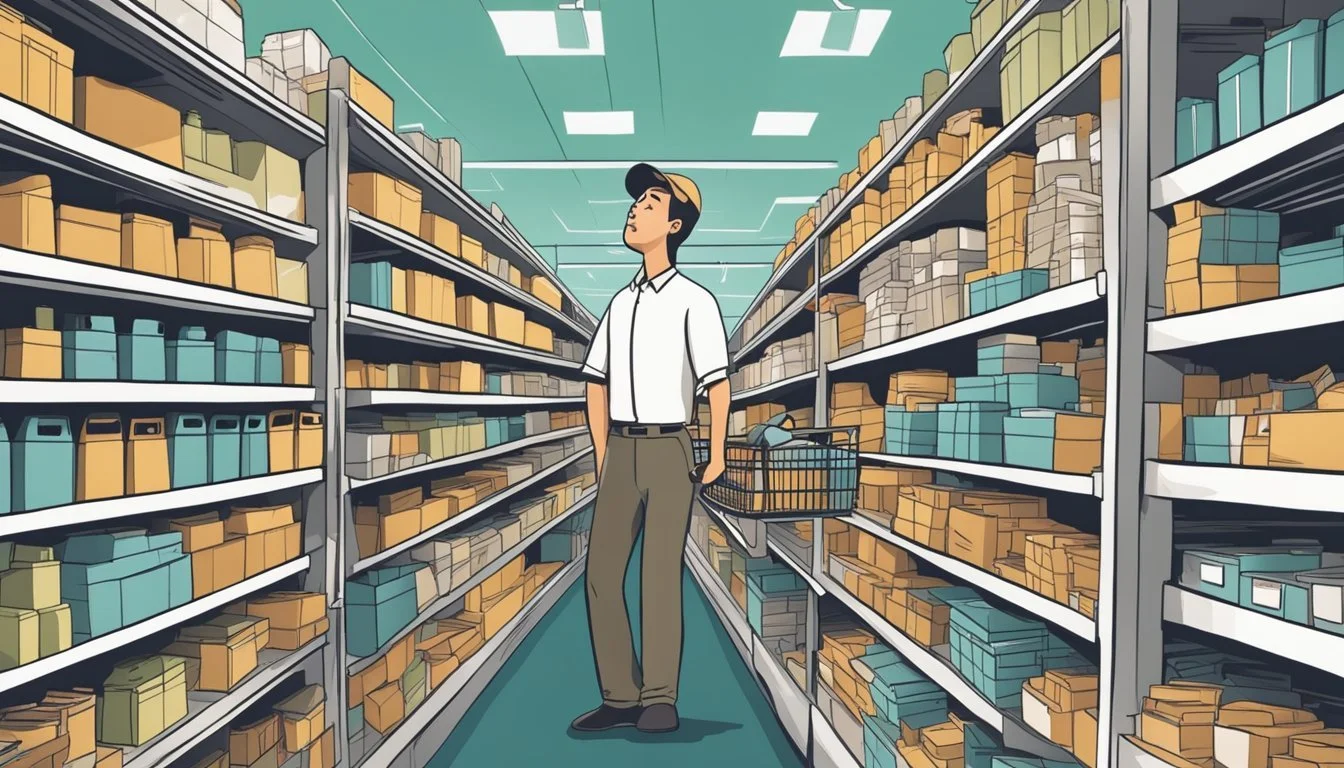5 Eye-Opening Documentaries for Retail Workers
Must-See Films for Industry Insights
Documentaries have the power to illuminate hidden realities and spark important conversations. For retail workers, certain films can provide valuable insights into the broader industry landscape and labor issues they may encounter.
These eye-opening documentaries shed light on topics like fast fashion, supply chains, and worker rights that directly impact those in retail roles. By exploring these complex subjects through compelling storytelling, the films offer retail employees a deeper understanding of their profession and the global systems it operates within. Viewers may come away with new perspectives on consumerism, sustainability, and advocacy within the retail sector.
1) "The True Cost" by Andrew Morgan (2015)
"The True Cost" exposes the hidden impacts of the fast fashion industry. Directed by Andrew Morgan, this documentary takes viewers on a global journey across several countries.
The film examines the harsh realities faced by garment workers in developing nations. It reveals how many workers earn less than $3 per day and face unsafe working conditions.
Morgan's documentary also highlights the environmental consequences of fast fashion. It shows how clothing production contributes to pollution and pesticide contamination in various regions.
Through interviews with fashion influencers, journalists, and activists, "The True Cost" paints a comprehensive picture of the industry's effects. It explores the complex relationship between consumers, corporations, and the people who make our clothes.
The documentary serves as an eye-opening look at the true price of affordable fashion. It challenges viewers to consider the human and environmental costs behind their clothing purchases.
More information on "The True Cost"
2) "Walmart: The High Cost of Low Price" (2005)
This documentary film directed by Robert Greenwald examines the business practices of Walmart, the world's largest retailer. It explores the company's impact on local communities, workers, and the economy.
The film features interviews with former Walmart employees, small business owners, and community leaders. They share their experiences and perspectives on the company's influence.
Key topics covered include Walmart's labor practices, healthcare policies, and effects on small businesses. The documentary also looks at the company's international operations and environmental record.
Critics praised the film for shedding light on Walmart's less publicized practices. Some viewers found it eye-opening regarding the true costs behind Walmart's low prices.
The documentary sparked discussions about corporate responsibility and ethical business practices in the retail industry. It remains relevant for retail workers seeking to understand broader industry dynamics.
3) "Food, Inc." by Robert Kenner (2008)
"Food, Inc." exposes the inner workings of the American food industry. The film sheds light on corporate farming practices and their impact on health, the environment, and animal welfare.
Robert Kenner's documentary examines how a handful of corporations control the majority of the food supply. It reveals the hidden costs of industrialized food production and its effects on consumers, farmers, and workers.
The film features interviews with farmers, industry insiders, and food safety advocates. It explores topics such as the prevalence of corn in processed foods, the treatment of animals in factory farms, and the rise of antibiotic-resistant bacteria.
"Food, Inc." aims to educate viewers about where their food comes from and the consequences of current agricultural practices. It encourages consumers to make informed choices about their food and advocates for greater transparency in the industry.
More information on "Food, Inc."
4) "The Men Who Made Us Spend" (2014)
"The Men Who Made Us Spend" is a three-part documentary series that explores the psychology and tactics behind consumer spending. Presented by Jacques Peretti, the series delves into the strategies companies use to encourage people to buy more products.
The first episode examines planned obsolescence, revealing how manufacturers intentionally design products with limited lifespans. It traces this practice back to the 1920s light bulb cartel, which deliberately shortened bulb life to increase sales.
Episode two focuses on fear as a powerful motivator for consumer spending. Peretti visits a neuroscience lab to understand how our brains respond more strongly to negative stimuli than positive ones.
The final installment investigates other psychological techniques used to drive consumption. Throughout the series, Peretti interviews experts and industry insiders to uncover the methods behind modern marketing and product design.
"The Men Who Made Us Spend" offers retail workers valuable insights into consumer behavior and the forces shaping the retail industry. It provides a critical look at the strategies that influence buying decisions and drive economic growth.
More information on "The Men Who Made Us Spend"
5) "Minimalism: A Documentary About the Important Things" (2015)
"Minimalism: A Documentary About the Important Things" explores the concept of living with less. The film follows Joshua Fields Millburn and Ryan Nicodemus, known as "The Minimalists," as they share their journey towards a simpler lifestyle.
Directed by Matt D'Avella, this documentary challenges viewers to reconsider their relationship with material possessions. It showcases various individuals who have embraced minimalism and found greater fulfillment in life.
The film examines how consumerism impacts society and personal well-being. It presents alternatives to the constant pursuit of more, encouraging viewers to focus on what truly matters.
For retail workers, this documentary offers a unique perspective on consumer culture. It may prompt reflection on the role of material goods in people's lives and the potential benefits of a more minimalist approach.
Viewers can expect thought-provoking interviews and insights into how minimalism can lead to increased happiness and reduced stress. The documentary serves as an introduction to the minimalist lifestyle and its potential advantages.
Impact of Retail Work on Employees
Retail work poses significant challenges for employees, affecting their well-being and job satisfaction. The demanding nature of the industry can lead to various workplace issues and health concerns for workers.
Workplace Challenges
Retail employees often face long hours, unpredictable schedules, and high-pressure environments. Many struggle with low wages and limited benefits, making it difficult to achieve financial stability.
Customer interactions can be stressful, requiring constant patience and emotional labor. Dealing with difficult customers or handling complaints takes a toll on workers' morale.
Physical demands are common, including prolonged standing, lifting heavy items, and repetitive motions. These tasks can lead to fatigue and physical strain over time.
Job insecurity is a persistent concern, with many retail positions being part-time or seasonal. This uncertainty can create anxiety about future employment prospects.
Mental and Physical Health
The fast-paced retail environment can contribute to burnout and stress among employees. Constant pressure to meet sales targets and maintain customer satisfaction can be mentally exhausting.
Long hours and irregular schedules disrupt work-life balance, potentially leading to sleep issues and reduced personal time. This imbalance can negatively impact mental health and relationships.
Physical health problems may arise from the demands of retail work. Back pain, foot problems, and repetitive strain injuries are common due to prolonged standing and repetitive tasks.
Exposure to workplace hazards, such as slips and falls or interactions with potentially aggressive customers, can pose risks to employee safety and well-being.
Mental health concerns like anxiety and depression are prevalent in the retail sector. The combination of stress, low pay, and job insecurity contributes to these issues.
Insights Into Retail Industry Dynamics
The retail landscape is experiencing significant shifts driven by economic factors and technological advancements. These forces are reshaping how retailers operate and interact with customers.
Economic Pressures
Retailers face ongoing economic challenges that impact their strategies and operations. Inflation has led to increased costs for goods and labor, squeezing profit margins. Many companies have responded by raising prices or seeking operational efficiencies.
Supply chain disruptions continue to affect inventory management and product availability. Retailers are diversifying suppliers and investing in forecasting tools to mitigate these issues.
Consumer spending patterns have become more volatile, influenced by economic uncertainty. This has prompted retailers to focus on value offerings and flexible purchasing options like buy-now-pay-later services.
Technological Innovations
Technology is transforming the retail sector at a rapid pace. E-commerce growth has accelerated, with more consumers shopping online than ever before. Retailers are investing heavily in their digital platforms to provide seamless omnichannel experiences.
Artificial intelligence and machine learning are being applied to personalize shopping experiences and optimize pricing strategies. These technologies help retailers better understand customer preferences and predict demand.
Contactless payment methods and self-checkout systems have become increasingly common, enhancing convenience and reducing labor costs. Augmented reality tools are being used to create virtual try-on experiences for products like clothing and cosmetics.




